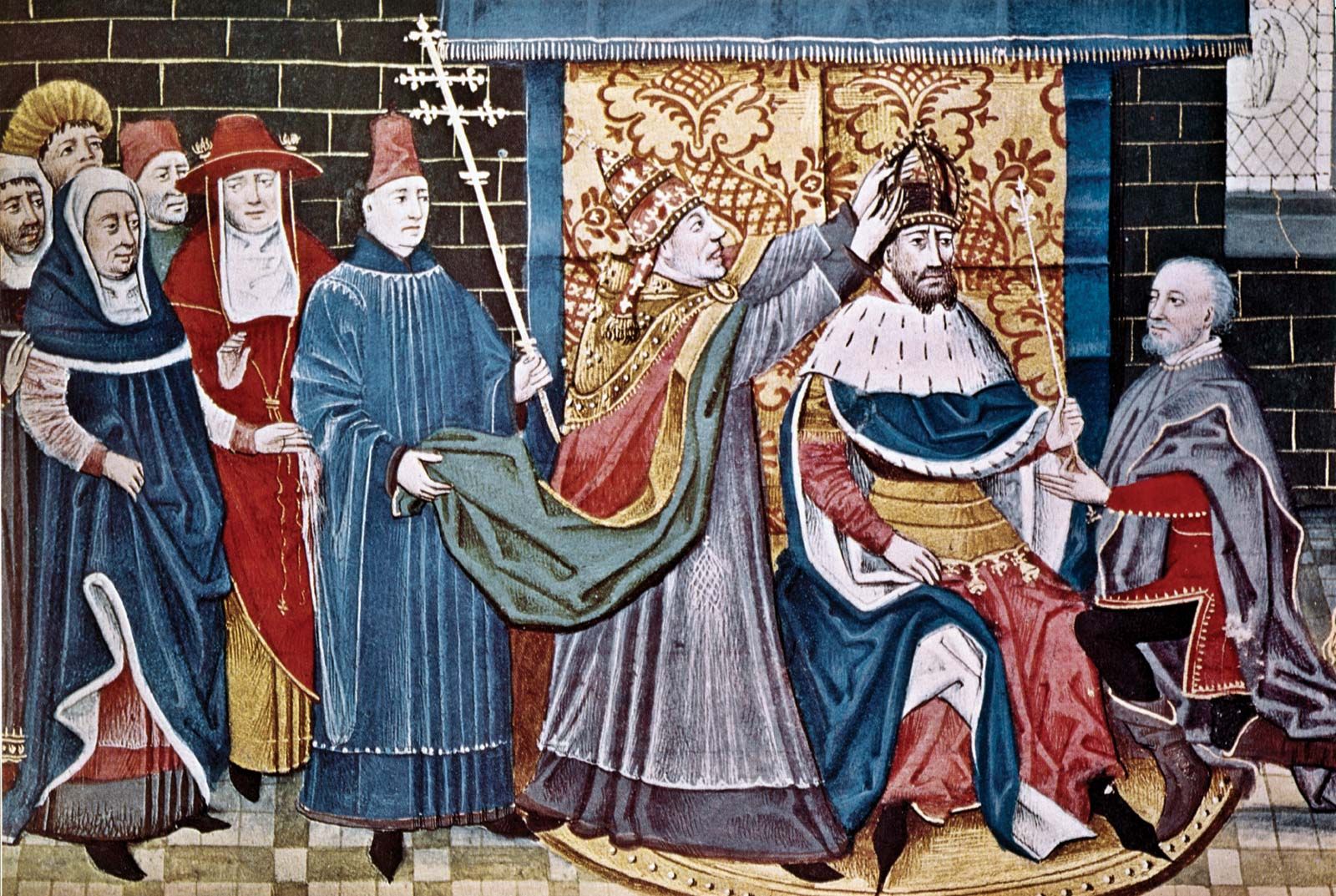When King Otto took the title of emperor in 962, he created for his successors a set of problems that far transcended the local problems of Germany. In the Carolingian West, emperor had come to mean a ruler who controlled two or more kingdoms but who did not necessarily claim supremacy over the whole world, as had Rome.
The kingdoms that the Western emperor was likely to control were Germany, Burgundy, and Italy. Burgundy had grown up under ambitious rulers in the region between the eastern and western Frankish lands. Italy, on the other hand, was weak, divided, and open to invasion. Thus the king of Germany had much to gain if he could secure the title of Emperor. And, if he did not make himself emperor, he faced a real danger that somebody else might.
Otto the Great’s grandson, the brilliant young Otto III, used a seal with the words “Renewal of the Roman Empire.” In Rome itself he strove to restore a Roman imperial palace, Roman titles, and Roman glory. He also put German officials on church lands to keep these lands out of the hands of the Italian nobility, and appointed German bishops to Italian sees in an effort to build up the sort of government he had at home.
Since Otto III paid careful attention to relations between Germany and the Slays, German contemporaries seem to have felt that his intervention in Italy was proper and legitimate. He was not trying to dominate the entire West but rather to establish himself as emperor in the new sense and to consolidate the rule of the Saxon dynasty.
German culture and trade benefited from the Italian connection. By the early eleventh century, the right of each new German king to be king of Italy and emperor was taken for granted. Italy benefited as the long period of anarchy finally came to an end. The emperors raised the level of the papacy from the degradation it had reached in the tenth century. But as the emperors sponsored reform within the church, they set in motion forces that would make the papacy a world power.
A sense of German national unity was asserting itself, as shown by the general use of the term teutonici (Teutons, or Germans). When the Saxon dynasty died out in 1024, Conrad II (r. 1024-1039) was elected king. The new dynasty, which came from Franconia, produced activist administrators, notably Henry III (r. 1039-1056). Conrad began training members of the lower classes to serve as administrators. The church had long used such men to run its great estates, and now the kings used them to run the lands of the Crown. They often received lands as a reward, and their lands became hereditary. Thus these ministeriales depended directly on the Crown, had a status that could not be described as feudal, and remained as a class peculiar to Germany.
Though the class of free landholders had no feudal ties, it had no royal ties either. So when the attack came on the increasing centralization of the eleventh-century German monarchy, it came from these free landowners. They had strengthened their position by becoming the guardians or “advocates” of monasteries. In 973 there were 108 abbeys in Germany, probably all attached to the Crown; in 1075 there were more than seven hundred, and almost all the new ones were attached to members of the landowner class.
Founding a new monastery in Germany was not solely a sign of the founder’s piety, for monks colonized new lands, and the resulting revenues went to the founder of the house. To keep these valuable monasteries out of royal hands, the German nobles often made them the legal property of the pope. Thus, side by side with what may be termed the “royal” church and its bishops, there grew up in Germany a “noble” church based largely on monastic foundations.
Opposition to the royal church, to the power of the low-born ministeriales, and to the trend toward monarchical centralization led the German nobility to revolt. In 1073 the nobles rose in Saxony against the emperor Henry IV (r. 1056-1106); in 1075 Henry crushed the uprising. But only a few weeks later there began the open struggle with the papacy that gave the nobles new occasion to rebel. This was the Investiture Controversy, and it lasted half a century.

